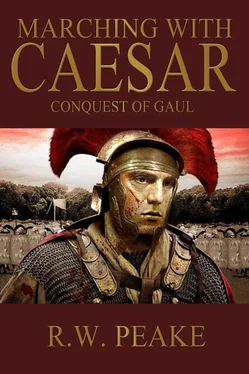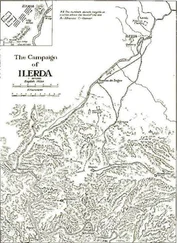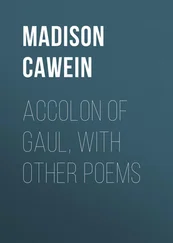R. Peake - Marching With Caesar - Conquest of Gaul
Здесь есть возможность читать онлайн «R. Peake - Marching With Caesar - Conquest of Gaul» весь текст электронной книги совершенно бесплатно (целиком полную версию без сокращений). В некоторых случаях можно слушать аудио, скачать через торрент в формате fb2 и присутствует краткое содержание. Жанр: Исторические приключения, на английском языке. Описание произведения, (предисловие) а так же отзывы посетителей доступны на портале библиотеки ЛибКат.
- Название:Marching With Caesar: Conquest of Gaul
- Автор:
- Жанр:
- Год:неизвестен
- ISBN:нет данных
- Рейтинг книги:3 / 5. Голосов: 1
-
Избранное:Добавить в избранное
- Отзывы:
-
Ваша оценка:
- 60
- 1
- 2
- 3
- 4
- 5
Marching With Caesar: Conquest of Gaul: краткое содержание, описание и аннотация
Предлагаем к чтению аннотацию, описание, краткое содержание или предисловие (зависит от того, что написал сам автор книги «Marching With Caesar: Conquest of Gaul»). Если вы не нашли необходимую информацию о книге — напишите в комментариях, мы постараемся отыскать её.
Marching With Caesar: Conquest of Gaul — читать онлайн бесплатно полную книгу (весь текст) целиком
Ниже представлен текст книги, разбитый по страницам. Система сохранения места последней прочитанной страницы, позволяет с удобством читать онлайн бесплатно книгу «Marching With Caesar: Conquest of Gaul», без необходимости каждый раз заново искать на чём Вы остановились. Поставьте закладку, и сможете в любой момент перейти на страницу, на которой закончили чтение.
Интервал:
Закладка:
We were only given that night to take our revenge; the next morning the army was crossing the bridge, heading south to relieve Gorgobina, hangovers of some of our men notwithstanding.
“By the gods, Caesar is an inhuman beast, making us march like this after a night like that,” groaned Atilius as we tramped along.
By this time I had grown accustomed to my spot on the march alongside the Century, marching with the Pilus Prior and Scaevola, but I did miss being in the ranks and being able to talk to pass the time. For his part, Atilius was less interested in the material gains to be made, or gains of the flesh for that matter, than in bowing to Bacchus, for which he was now paying with a monstrous hangover. Didius was describing in detail the attributes of one of the maidens he ravished, to the disgust of the other men marching with him. In other words, it was a normal day on campaign, and despite thinking Didius’ detailed description of events the night before distasteful, I found myself smiling. Could there be any finer thing, I thought, than to be part of a triumphant army on the march? I could not think of anything then, and even now I still cannot. The reason that my comrades found Didius’ recounting as repugnant as I did is that, or at least I like to believe, there is an unwritten rule demanding we not speak of such things. Deep down, each of us knew that there was something inherently wrong with some of the things we did, yet a man’s flesh has needs, and those needs must be satisfied. For some reason, as long as I was in the army and according to veterans who were in longer than I to that point, while it is perfectly acceptable and in fact expected to boast to your friends about sexual exploits, events like the one that transpired the night before were frowned upon, although I do not know why. Regardless of any rule, Didius was oblivious, giving graphic descriptions of the maidens he deflowered, plunging on in his tales despite the jeering of his comrades. I do not want to portray Didius as being an exception, because in fact he was not; there were a large number of men who felt no shame at what they did when taking a town, but I will say that they were not the majority. Now, in the fullness of my old age, I have to wonder if Didius at least was honest enough to admit who he was and what he did; the gods know that none of us, myself included, had done any differently than he. It was just that we did not boast about it.
Continuing to move south towards Gorgobina, once again Caesar did not want to leave an enemy in his rear, so we besieged the town of Noviodunum. More accurately, we began the siege, then very quickly a group of men came scurrying out to beg for mercy. Yet again, Caesar granted it, but only on the condition that the men of the town were disarmed, to which the elders agreed. A contingent of Centurions was designated to handle the confiscation of the weapons, and it was while this was happening that some of Vercingetorix’s cavalry appeared from the south, their appearance giving the Bituriges, the people occupying the town, the delusion that they might yet win their freedom. Suddenly, there was a mad scramble as men tried to retrieve the weapons they had already discarded in one of the designated wagons, but of all the people that a Gaul wants to trifle with, a Centurion of Caesar’s army should accordingly be the last on their list. Drawing their swords, the Centurions held the townsmen at bay, managing to withdraw safely without losing a man. The same cannot be said for Caesar’s cavalry contingent, unfortunately, consisting mostly of Gauls from the few tribes that were not in revolt, and they took heavy casualties from Vercingetorix. However, after seeing the valor of them in action against the Usipetes and Tencteri, Caesar called for some 400 Germans and it was these men he sent forth. They came sweeping onto the field, brushing aside Vercingetorix’s cavalry with contemptuous ease and minimal loss. With the situation now in hand, the Bituriges came back out of the town to finish their surrender. I can tell you that it did not set well with Caesar’s veterans that we did not put the town to the sword for their treachery, and I am one of those who disagreed with Caesar’s decision to show clemency. However, orders are orders, so they were left unmolested for the most part.
Still marching further south, we stopped to besiege the town of Avaricum, and this marked a turning point in the tactics of the Gallic chieftain. Admittedly, after a series of setbacks Vercingetorix reacted quickly to try to forestall what we believed to be the inevitable, the submission of all of Gaul to Rome. Recognizing that he could never hope to match our might, Vercingetorix instead decreed that the entire countryside must be laid to waste. The young Arverni was powerful enough of a leader that his people followed his orders, despite knowing it meant that their families would starve. Accordingly, he also decreed that even the towns must be put to the torch, and none of them defended by the warriors in his army. He was determined to make the countryside a desert, and by doing so, force Caesar to turn his immense army southward to the Province for supply, giving the Gauls their freedom. As I have said, the Gauls are an argumentative lot, so it was not an inconsequential feat to get the vast majority to follow orders to lay waste to the land. Yet there were bound to be dissenters, and in this case it was the Bituriges, who had already lost one town, while we were laying siege to another. They did not openly disobey Vercingetorix as much as ask that an exception be made, pointing to the overall wealth of Avaricum, and more importantly, its defensibility. In this at least, they were correct; the town is almost completely surrounded by extremely marshy ground, with only a narrow strip of land where the one road leading into the town is the only practicable approach. Supposedly there was a great argument, the Bituriges more or less throwing themselves on the mercy of their fellow Gauls, begging that Avaricum be the one spared. I will give them this much, it was a wealthy town, and while I normally did not much take notice of such things, Avaricum possessed a certain air of beauty about it that marked it as different from all the other towns we either marched past or destroyed. Even as this matter was being debated, the other Gallic tribes were following the orders of Vercingetorix, putting to the torch not only their fields, but their towns and homes as well. One could make one full revolution of the horizon without a pall of smoke ever leaving their line of sight, the Gauls putting more than 20 towns to the torch. However, the Bituriges prevailed, with Vercingetorix reluctantly bowing to the will of the majority, deeming that Avaricum should be defended.
Because of the nature of the ground around Avaricum, we could not effect a circumvallation in our normal manner. Setting up our camp directly on the opposite side of the strip of solid ground leading into the city, we began the work of preparing the ground for the siege. Because the lay of the land, it was not feasible for us to concentrate our efforts to take the town just using this narrow strip of land, since it was barely wide enough for one Legion to march across at a time, thereby negatin our superiority in numbers. This is what kept Avaricum safe from investment by any of the Gallic tribes, yet they were not the engineers we were. Caesar looked at the marshy ground, and instead of throwing up his hands then hurling us one at a time across the dry ground in a bloody assault, he simply decided to fill in the marsh at certain points. At selected spots directly across from every wall, we began the process of filling in the marsh, not just throwing dirt in, but constructing a terrace similar in construction to the ramp I described previously so that our heavy artillery and the towers we were constructing could roll safely, moving up a ramp about 80 feet high where it touched the wall. Avaricum's walls loomed some 20 feet above that, these easily being the highest and strongest that we were ever up against. The height was partly because the city sat on the top of a small hill, with very steeply sloping sides, but the walls themselves were exceptionally high. What was astonishing to us was how the Gauls could build a wall that high without it toppling over; Caesar gives a detailed description in his Commentaries, so I will not go into it in any detail other than to say that despite ourselves, we were impressed.
Читать дальшеИнтервал:
Закладка:
Похожие книги на «Marching With Caesar: Conquest of Gaul»
Представляем Вашему вниманию похожие книги на «Marching With Caesar: Conquest of Gaul» списком для выбора. Мы отобрали схожую по названию и смыслу литературу в надежде предоставить читателям больше вариантов отыскать новые, интересные, ещё непрочитанные произведения.
Обсуждение, отзывы о книге «Marching With Caesar: Conquest of Gaul» и просто собственные мнения читателей. Оставьте ваши комментарии, напишите, что Вы думаете о произведении, его смысле или главных героях. Укажите что конкретно понравилось, а что нет, и почему Вы так считаете.












